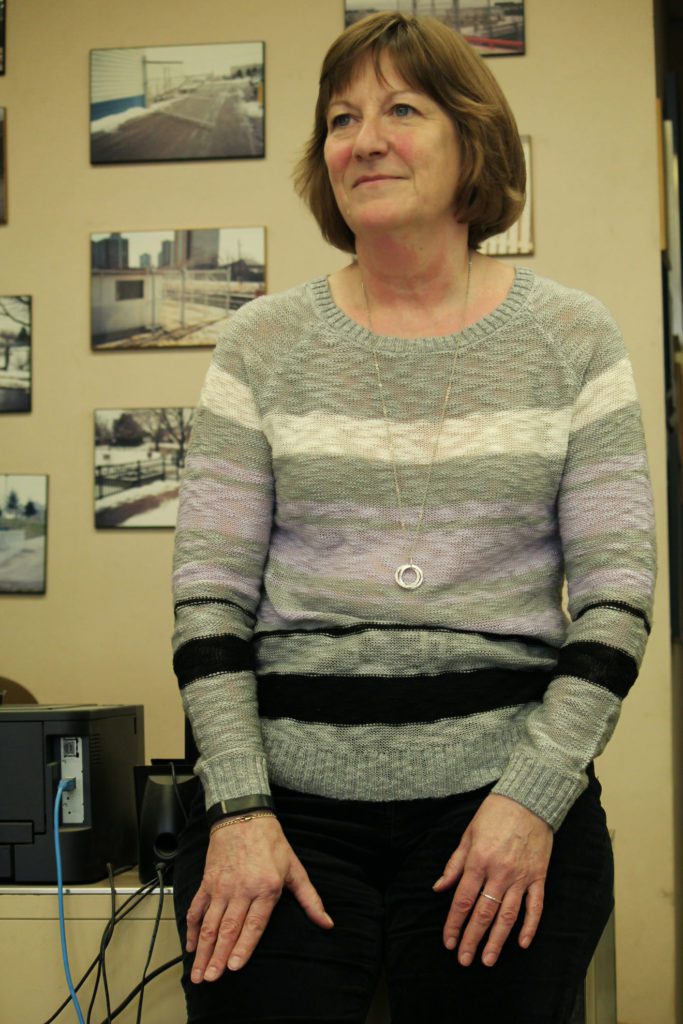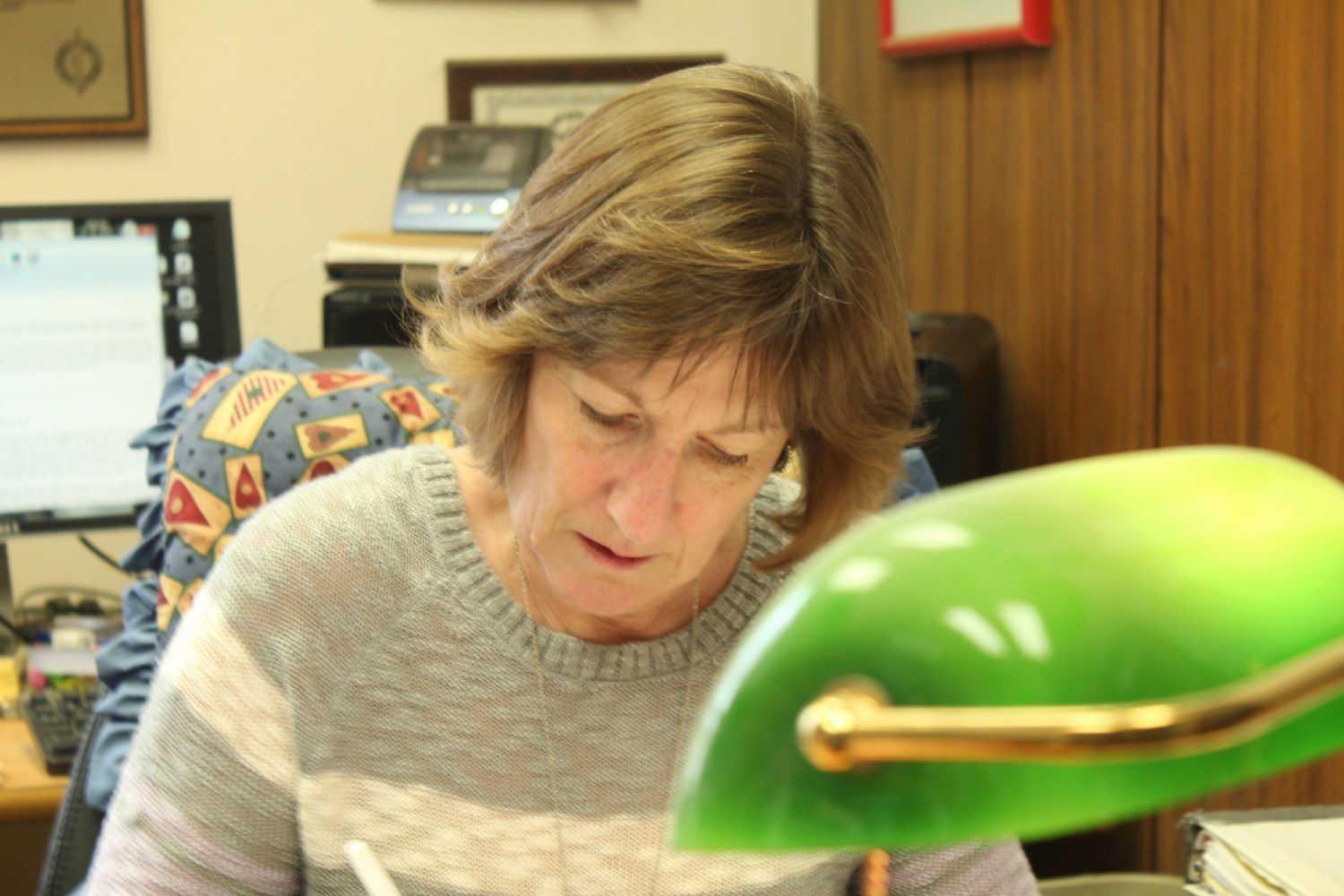Cathie talks about fighting rheumatoid arthritis – and her battle to have the drugs she needs covered by the health care system.
“When I was 36 years old and I was diagnosed with rheumatoid arthritis, I would sit on the side of the bed and cry in the morning because I couldn’t face getting up and standing on my feet because my feet hurt so much.”
“And I was so scared and I just didn’t know what was going to happen, what was going to become of me, how I would get by. I mean everything that you thought was going to be your future explodes and you have no idea what you’re going to be able to retain. I think that needs to change so that when somebody’s diagnosed, there is a support system there. There’s a health care system there that doesn’t just make them get in line with everybody else.”

“I have made presentations to the Finance Committee of the Ontario government, trying to make them understand that somebody, even without a biologic drug, is spending about $500 a month [on medications for rheumatoid arthritis]. Who has that? Nobody’s got that kind of money. That’s considered catastrophic drug costs, and where is that money coming from? How do people continue to work? Luckily here, I’m the boss. I sign the paycheques, so nobody can tell me whether I’m being productive or not. When you work at a bank, or in a school, you’re either there 100%, or you go home and there’s your disability. People who leave their work, I don’t think ever go back. I don’t have medical benefits. I don’t have a disability pension. I have none of that. So, if I don’t work, there’s no food on the table and there’s no roof over my head. And I think they need to understand that.”
“For somebody like me who is trying to work in the workforce, I need some help. I need somebody to be pulling for me and do something that makes that work for me. But they don’t get it.”

My biggest issue is the fact that where you live in Canada affects which drugs you are able to get.
“That doesn’t make sense to me. Why should somebody have to leave New Brunswick and move to Vancouver to get the drug that they need? I know these drugs are expensive and I’m trying to pay that back by doing a lot of advocacy in the arthritis community and working really hard to make a difference. I mean what else can I do? For me to continue running this business, I need those drugs.”

I think I’ve got the best family doctor on the planet.
“He is phenomenal. He’s been my family doc for more than 25 years. He has been with me through a number of different health issues, pretty serious ones. And he has always made time for me, even though he does a lot of work in palliative care, so he’s not in the office all the time. I can email him and he’ll send me a script for something. He doesn’t question me. He always says that if you say you need to come in, it’s because you need to come in. He’s just good to me and he’s very thorough and when he thinks there’s something going on that he’s not sure he can handle, he waits about a week to see if anything’s changing and then he refers me. And he picks up the phone. When I got my appointment with my rheumatologist, he picked up the phone and said, ‘She needs to get in. Cause I’ve done the tests and these are the results of the tests and she needs to come in.'”

“When I was first diagnosed, my rheumatologist was a very, very good rheumatologist, and she dealt very well with my symptoms and disease management. But never once did she ask me how having rheumatoid arthritis was impacting my life or my work or my marriage or my family or my social life. She never asked any of those questions. It just was a no go. I think the reason that doctors don’t do that is because they just don’t have time.”

“When I had my wrist done, they had a resident examine me before [the senior surgeon] came in. He said to the resident, ‘Now you tell me about her.’ And so she talked about the bones and the ulna and all that kind of stuff. And he said, ‘No, no, tell me about her.’ And so she started the whole thing again, and talked about the swelling and the pain. And he said, ‘No, no, no. I want to know about her. How is it impacting her?’ And the resident just kind of said ‘Oh, oh. I didn’t ask that.’ It was a good teaching moment.”

“My mother has had Alzheimer’s for about 14 years now, so she’s very late stage. She’s blind, she’s in a wheelchair. The only thing she can do for herself now is breathe.”
“She was going along not too badly, but about 4 years ago she just kind of virtually fell off a cliff. Her family doctor was an incredible person and he came to me one day and said, ‘I’m at a loss as to how to manage your mother. But I’ve got an idea. I’m going to call Ontario Shores and have somebody come out and assess her. They’ll give me some kind of guidance as to how to manage her from now on.’ So, he did that, and the assessment lasted 3 or 4 days, and they wrote this mammoth report. He called me and said, ‘I’ve got the report, and I have to tell you that I don’t agree with what they’re suggesting. But I also don’t think it’s right that I’ve asked them to do this whole thing and then not even try. So, I’m going to try and implement some of their suggestions, but I really don’t think any of them are going to work.’ And so he did. One of the things that they suggested involved the nursing home itself changing its protocol as to how they handle the residents. In the morning everybody is up at the same time, everybody goes to breakfast at the same time, everybody is treated the same. And with her, it involved leaving her in bed until she was awake and more functional. They would give her breakfast in bed and they would get her up when she was ready to get up. In a place like that, that’s a huge thing. And they agreed to it. He also changed her meds and he came back to me and he said, ‘I have to admit that they were right all along.’ I could see that the changes had made a huge difference in her as well. I thought that was really big of him. To admit that he was wrong and that he was skeptical about what they were suggesting.”
“Too often I think these people are forgotten. Nobody really cares because they’re old and they’ve got dementia. What difference does it make? But you know, he gave her back some quality of life. There’s not much there, but he did give her back some quality of life. I wanted to tell this story because too often you hear really bad things about long-term care and you never hear good stories.”


The comments section is closed.